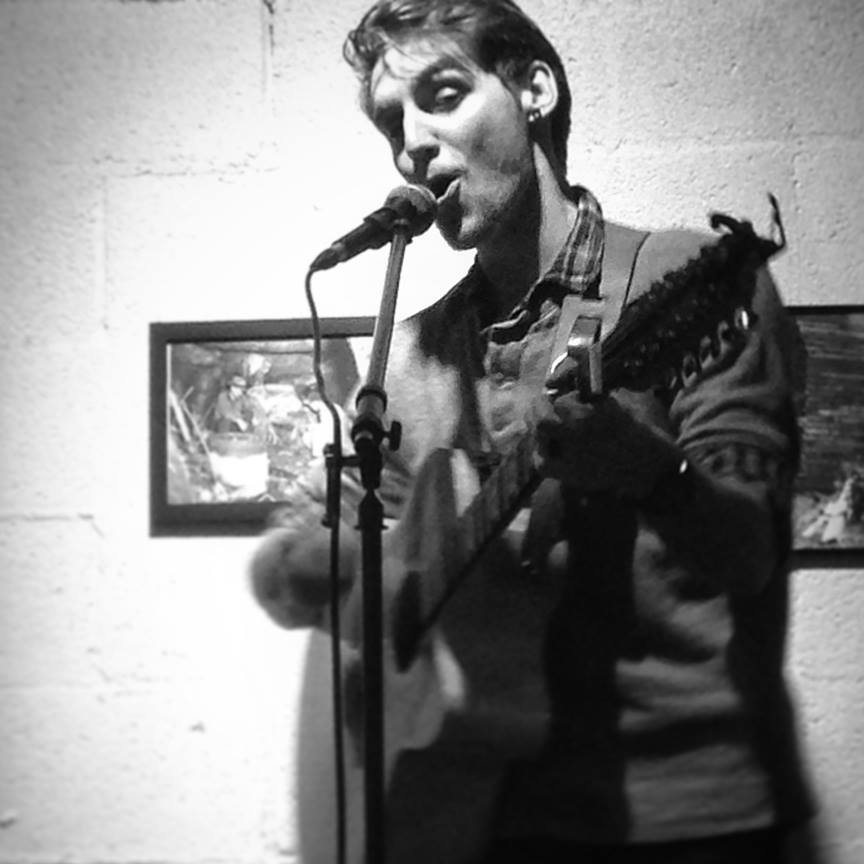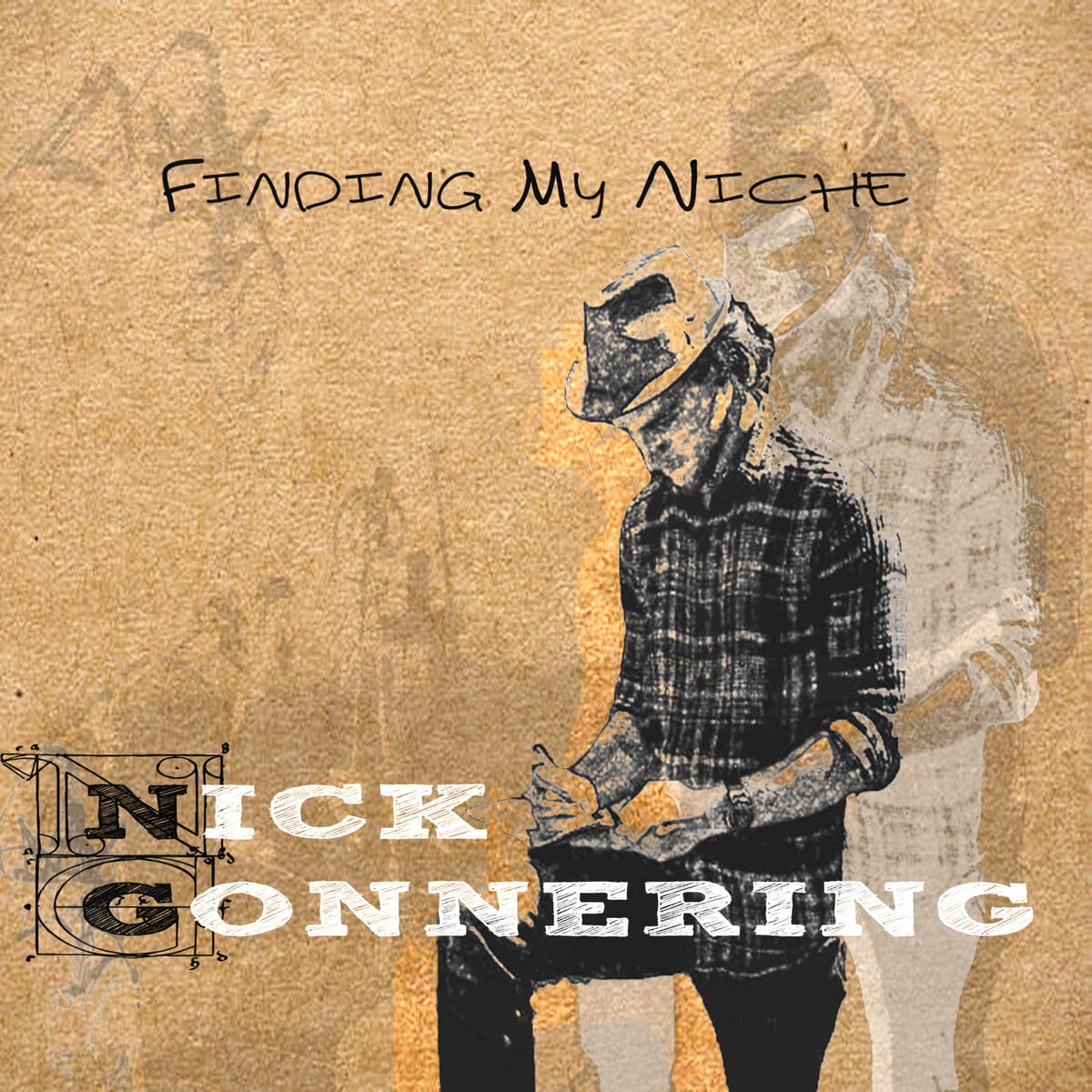
Spectacular Decomposition: from Tampa FL to Asheville NC
Article by Phil Sroka
I felt the episode coming on kind of in the way they say birds know when an earthquake or some other natural disaster is about to hit. It’s like an arrangement in the stars of the body that one could predict if only you knew the exact outline for the constellation, but your limited perspective gives you merely a premonition just before the occlusion begins, a subconscious familiarity of the seismic variations of one’s own mental phenomena in a psychic déjà vu. This is starting to sound mystical, but it is oh so very physical. My experiences with mania are comparable to the failures in a dam. It is a surge of psychic enervation that the foundations we build around our quotidian dissatisfactions are unable to contain. It is what the psychologist Kay Jamison refers to as being “touched with fire.” If caught in time, one can implement fail-safes to divert the flow, but they come on quick, and the dam breeches. At this point all you can do is brace yourself and hope for the best.
Mental illnesses are various parts biological disposition and constructed personality traits. Psychotherapy and psychiatry work hand in hand in this way, for the former addresses our own self-image and how we project ourselves into social relations, while the latter attempts to mitigate the effects of so-called chemical imbalances. For the sake of simplicity, I have heretofore used the term mental illness, but I much rather prefer neuro-divergence. There is nothing a priori wrong with how my or any other person’s brain chemistry is structured. There is nothing deficient in the dipolar individual. Rather, with the converse term for what is considered ‘normal’ being neuro-typical, neuro-divergence asserts that we can well imagine the construction of a world order in which the prevailing mood is other than what we have come to know and accept. However, the neuro-divergent individual is subject, depending upon their psycho-social disposition, to a range of crises resulting from the dissonance between how one experiences the external world and how that reality feeds back into themselves.

Such episodes have resulted for me both in self-destructive behaviors and turbulent bouts of creativity – a duality that I have since appropriated the terms from the Situationist Raoul Vaneigem as “Spurious Opposition” and “Spectacular Decomposition.” To suppose that either side is strictly positive or negative would be misguided. The episodes of self-destruction have underscored discontents with my then-current condition, which such actions served as a means towards deeper understanding, appreciation, and insight, whereas those of turbulent exuberance facilitated the creative deconstruction of seemingly otherwise positive forms. What I have learned is the importance of channeling this energy. Such channeling is not a question of harnessing or wrangling it into place as if it were something to be subdued or mastered, however. It is rather a matter of developing one’s own sense of spontaneous purposefulness.

The Situationist International was an artistic political movement affiliated with the May ’68 riots in France, which took its lineage from Dada to Surrealism and led to the English anarchist group King Mob. Malcolm McLaren, who is considered to be the brains behind bands like the Sex Pistols and New York Dolls, was a member of King Mob, which ultimately is what gave us the aesthetic for what we now know as Punk Rock. The Situationists were proponents of what they called the dérive in which the individual allows the psycho-geography of one’s surroundings to lend purpose to an otherwise meaningless walk. Guy Debord describes it as such:
In a dérive, one or more persons during a certain period drop their relations, their work and leisure activities, and all their other usual motives for movement and action, and let themselves be drawn by the attractions of the terrain and the encounters they find there (from Les Lèvres Nues #9 (November 1956)).

As such my decision to flee had been a pure flight of fancy – an attempt to give the excess energy a constructive route, unfettered but ontogenetic. The previous night, after having delivered what must have been a not unfamiliar, long, and tedious monologue to an old friend (a friend with whom we agree upon on very little but still have maintained contact over the past eighteen years. I hope for all of you that you find or have someone who intolerably tolerates your shit and isn’t afraid to call you out on it.) over the phone. During our discussion she had suggested that I might like Asheville NC. Now, unlike her, I had never been particularly struck by wanderlust. Movement to me of any kind demanded a purpose – travel for its own sake seemed onanistic. Nevertheless, the very next day, I grabbed what I had and took off. No plan. No packing. Fuck, hardly any money. I just left.
I literally coasted into Asheville running on fumes and with a grand total of $1.80 left in my pocket. I followed my phone’s GPS the whole way, making the occasional impulse stop to stretch my legs and admire my surroundings during the ten-hour drive. It was late and much colder than I expected. I hadn’t left the state of Florida in about eight years. But the nipping autumn mountain air was exhilarating and brought back sensory memory of gusts off the Great Lakes winding their way to my Chicago childhood home. I had no idea where to go and knew no one at all. But it felt right. The pressure that had been surging up in my chest began pushing out through my pores, and as I traversed the small but compact city I found myself marveling at every turn. The great thing about Asheville is that it functions almost as a hub for transients. I later learned that the city had recently been starting to crack down on this phenomenon, but as I crossed paths with buskers and bourgeois alike I didn’t feel animosity from either.
The compactness of Asheville allowed me to retrace my paths while adding variations of fancy so as to both gain familiarity with my surroundings without it becoming redundant. Having no funds allowed me to signpost my surroundings not by means of consumption but engagement. Street poets and musicians became moving landmarks that would re-orientate me to the kaleidoscopic landscape of people and things. Nevertheless, as the night grew on, my material circumstances began to press on me. Fortunately, the mania had suppressed my hunger, so food was not a priority. But the thought of having no shelter but my car began to worry me, for I would need to find somewhere safe to sleep. I decided to make my way to the downtown Pritchard Park area where I had earlier seen other transients set up camp.

A crowd had begun to grow around a particular musician, and so I grabbed a seat on a bench to decompress and allow the impending progression of the hours to inspire me. As I sat there, people would occasionally join me as the musician sang and passersby applauded. His music was calming and passionate, and as the residents began to go home I found myself alone with him. His name was Nick Gonnering, and he and his partner, Alicia, were passing through themselves while working on putting out an album, Finding My Niche. In time I began to feel as if my presence though was compelling the musician to keep going into the night for my sake alone, so I gave him and Alicia a smile and nod and started to walk again.

The complete insecurity of wandering unfamiliar streets in a strange place with no resources allowed me to embody creativity with every step. I felt like an urchin Oulipian finally able to realize one’s inclinations unstructured by habit. Oulipo (which stands for Ouvroir de Litérature Potentielle, or, Workshop of Potential Literature) is another artistic movement, this one inspired by Alfred Jarry. Jarry was an avant-garde writer acknowledged as a forefather to Dada and Surrealism who was notorious for his outrageous behavior and capacity for drink. He developed his own system called “pataphysics,” which he describes as the science of imaginary solutions – as far removed from metaphysics as the latter is from physics.

One of these “solutions,” which he appropriated from the Roman atomist philosopher Lucretius, was the notion of the clinamen. The clinamen is characterized as an irrational swerve wherein ordered systems are subject to chaos. For Lucretius this was a necessary tool to justify the collision of atoms in the void in that such a swerve was needed for matter to arise since otherwise these atoms would simply fall in a straight line like rain without ever coming into the necessary contact that would bring about the world. Oulipo saw in this notion that creativity was a matter of breaking through orthodoxy. Their whole project became one in which they would devise arbitrary rules which would allow them to then find novel solutions. They saw the idea of creativity being a matter of radical freedom as erroneous in that true expression comes from the conflict between subjective and objective reality, a showdown between will and world.

My continued wanderings eventually lead me back round to Pritchard Park, and I could hear again in the distance the familiar sound of the same busker, Nick Gonnering. Sound seems to travel better in the cool altitude, which brought with it the soothing melody, and so I decided to return to my spot. To my surprise the busker was now playing to no audience at all. The sight of this brought with it a rush of adrenaline, and I eagerly enjoyed what we jokingly called my own private performance. As the night wore on the interludes between playing and idle conversation grew among the three of us, with the occasional addition of a local stopping in after the close of his or her shift, and I learned more about their current journey through Asheville. As the night came to a close, Alicia suggested I park my car in the lot outside the Kohl’s shopping center, where they knew I would be secure from being hassled by the police. We exchanged contact and called it a night.
I awoke early the next morning huddled in my car with frost on my windows. Not having enough gas to run the heat and wearing only a t-shirt made staying put impractical, so I got up, aimed myself in the direction of downtown, and continued my dérive. Familiar faces from casual passings the night before greeted me in town, and I relearned the city in its transformation into daily life. Throughout the previous night I would pass a bench that had been claimed by someone who seemed to be passing through the city like myself. Curled up in barely anything but a blanket and rarely showing signs of life I would watch as passersby made casual attempts at ensuring this person was alright. As I sat in the grass that morning at a bus stop adjacent from this bench, waiting for a lift with the remaining change in my pocket so I could obtain the means necessary to make it back home, I noticed that this person was still there.
As I watched and waited for the bus, a man came up and sat down with this person-of-the-bench. From my position across the street I couldn’t hear what they were saying to one another, but I saw them stand up together, get into the man’s car, and drive away. I couldn’t help but imagine that this had been some benevolent stranger who decided to take this person to get a warm meal together. It just seemed like the beautiful type of chance occurrence that had been happening all around me since I had arrived. I could feel the waters begin to ebb within my mind, and a tranquility spread through my body as I spent my remaining hours in Asheville and returned to Tampa, a spectacular decomposition of chance swerves in the void falling into an irreducible rhythm scored by buskers and scarred with hope.
